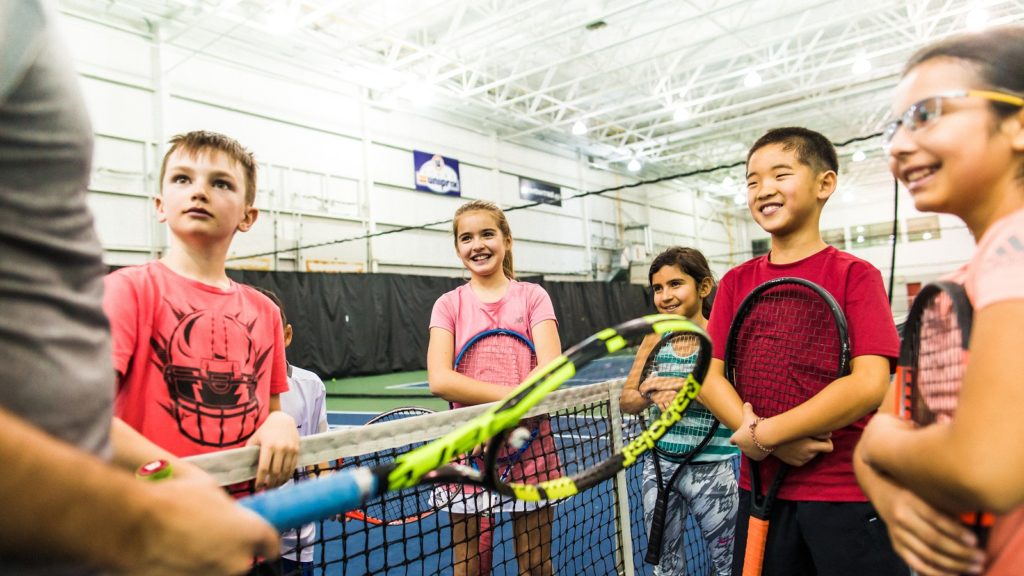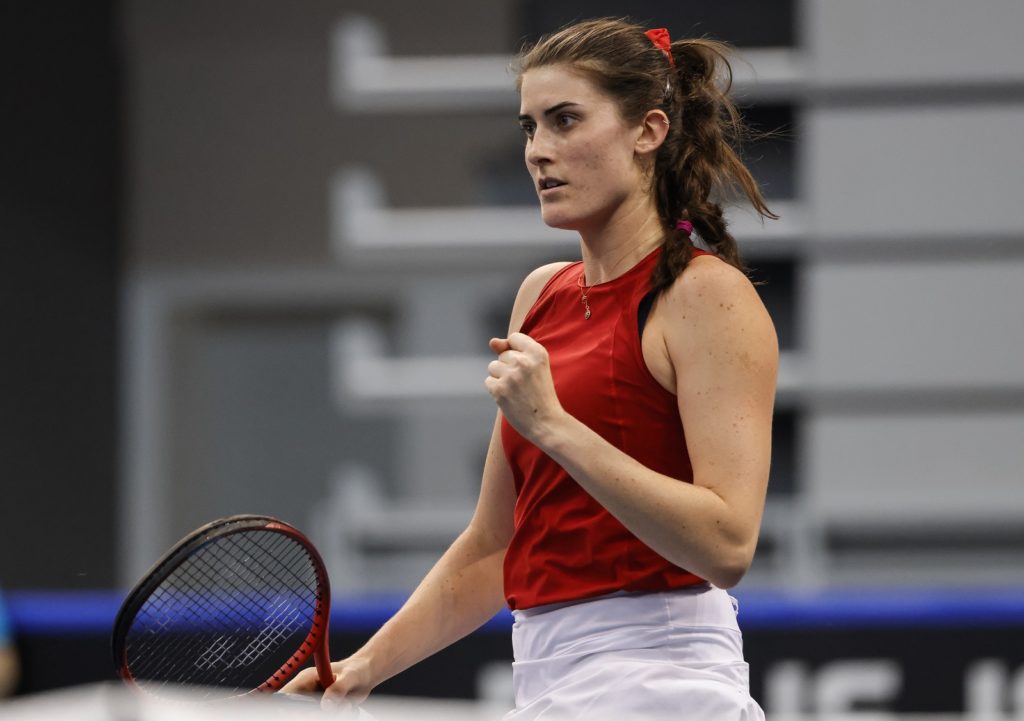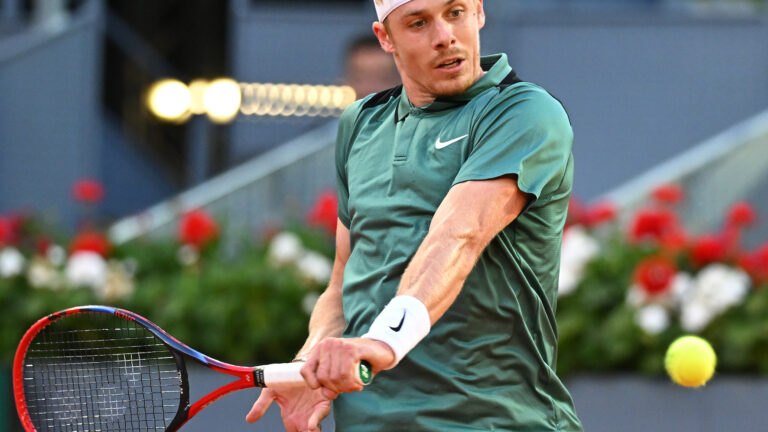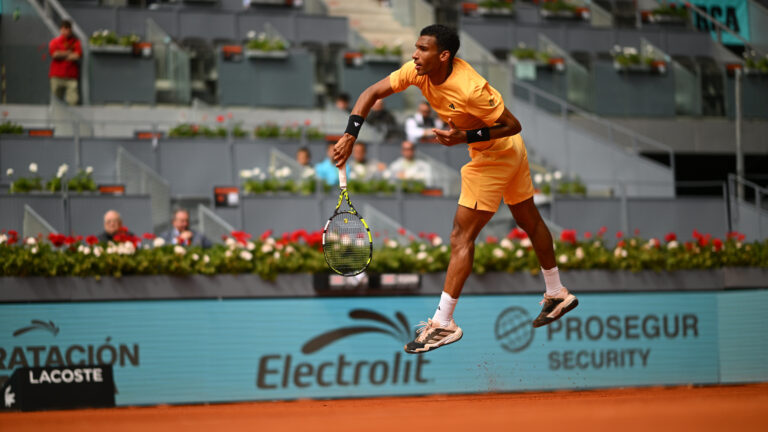
“A safe athlete is a healthy athlete is a better athlete.” Those are the words of Ilan Yampolsky, Tennis Canada’s Director of Safe Sport and Integrity. Having been with the organization for just over two-and-a-half years – originally joining in April 2019 after holding senior roles at Skate Canada and Scouts Canada – Ilan is the driving force behind Tennis Canada’s safeguarding initiatives.
A large part of Ilan’s role includes educating staff, coaches and senior figures at the national association, as well as the Provincial Tennis Associations (PTA) across the country. Earlier this year, Tennis Canada introduced a new Safe Sport Code of Conduct with the rollout involving a virtual training session and the requirement for all staff to sign the new Code. This stems from the concept that keeping tennis safe starts with the sport’s key leaders and administrators.

“We really have to concentrate on what we do proactively, how we educate our stakeholders and what type of policies we have in place,” Ilan commented. “Are athletes comfortable to come to us and to talk to us about this? Do we create this open and safe environment for everybody in the organization, not just the athletes? I keep saying athletes but it’s much more than that.
“Everybody says that the first thing that’s important for them is safety. Now, who’s going to do that? Where does it start? It starts with us. It starts with the coaches, with the officials, with the administrators. It starts with our Board of Directors and goes throughout our organization. It’s our moral and ethical obligation to do this for sport in Canada.”
More recently under Ilan’s leadership, Tennis Canada – in collaboration with its PTA partners – distributed a series of communications to coaches and club leaders across the country with the purpose of encouraging as many as possible to complete their safeguarding certification, which is mandatory for all Tennis Professionals Association (TPA) – Tennis Canada’s coaching development arm – members. The final communication included video testimonials from various athletes who have experienced some form of abuse or have struggled with their mental health as a result of their involvement in sport.
Allison Forsyth is a former Olympic skier who won five World Cup giant slalom medals and bronze at the World Alpine Championships, but she was also abused by her former coach. She said: “I would give every medal back in the world in order to have not had what happened to me happen to me. I can’t change the past, but my aim now, and my goal is to do whatever I can as a survivor to protect the future athletes and organizations in sport.
“So please, please take it seriously. Please do everything you can to be your own advocate. It is not one person’s responsibility to protect athletes in sport. It’s about protecting yourself, protecting the athletes and overall just making sure that your organization, wherever you may be in the world of tennis is a healthy, happy place for all of your participants.”
Rosie Cossar, meanwhile, competed at the London 2012 Olympics as a rhythmic gymnast and is a member of the LGBTQ+ community. Speaking directly to the coaches and club leaders watching, she said: “You have the power to not only cultivate champions, but to cultivate champions in life as well. These athletes are coming out of your influence being better people as well as better athletes. So, if I can tell all of you to do one thing, it is to invest in your safe sport education, because this is the way that we cultivate our future champions.”
Rosie added: “When I decided to come out and I was finally able to give everything that I had, every part of me to what I was doing, my performance was reflected in that. I was all of a sudden more confident, I was more mentally healthy. I was emotionally stable, and I was able to finally perform to my full potential. And I really credit being able to find that ability and that courage to be myself for the reason that I ended up making it as far as I did in my sport.”

Rebecca Marino is currently ranked No. 158 on the WTA Tour, is a regular on Canada’s Billie Jean King Cup team and is also a certified coach. Earlier in her career, she decided to take an extended break from competing professionally due to a battle with depression.
“Tennis is one of the fastest growing sports in Canada, and I feel that as an industry, we need to set the standard for what sport across the board should look like,” Marino explained. “So safe sport would be a way for us to prevent maltreatment and to create a safe environment for everyone. And that’s not only athletes, but for administrators and coaches and anyone who is touched by tennis in some way. And this would create a healthy workplace.
“From an athlete’s perspective, knowing that I have a coach who is Safe Sport certified makes me feel much more at ease because they’re able to just make me feel like I’m in a safe and caring environment and that I can completely be myself and I don’t have to worry about all the external things outside of just my training.”
Click here to view the list of organizations and year-round facilities in Canada whose entire staff is comprised of fully-compliant TPA members, meaning they have completed their mandatory safeguarding certification. To sign up for the Tennis Professionals Association please click here.
For more information and any other safeguarding questions, please contact Ilan Yampolsky at iyampolsky@tenniscanada.com.


